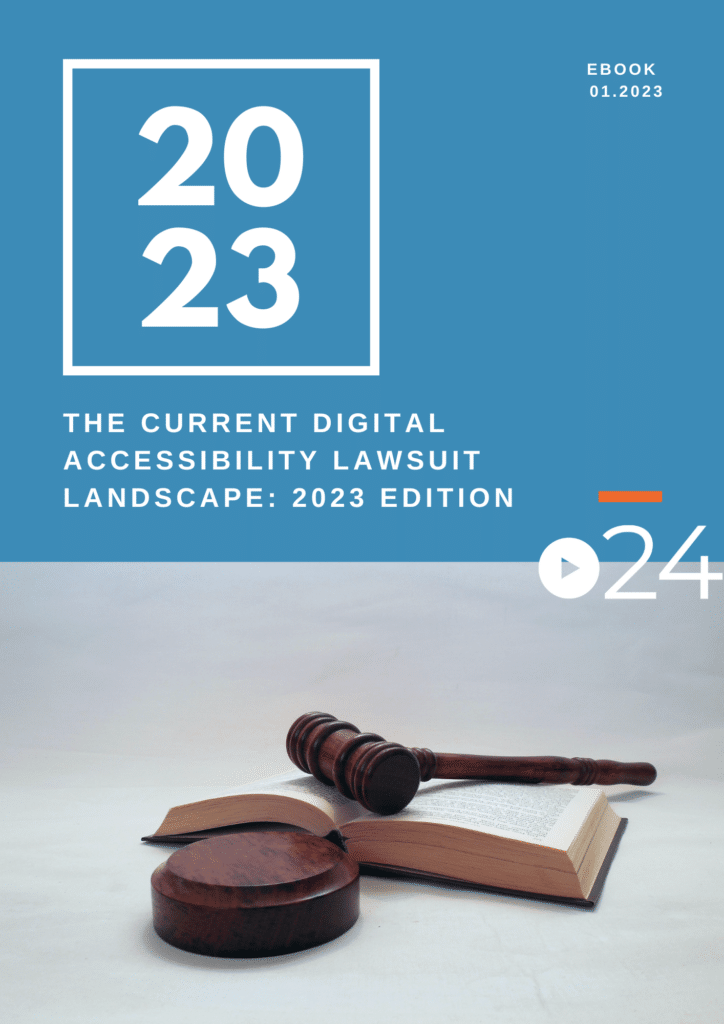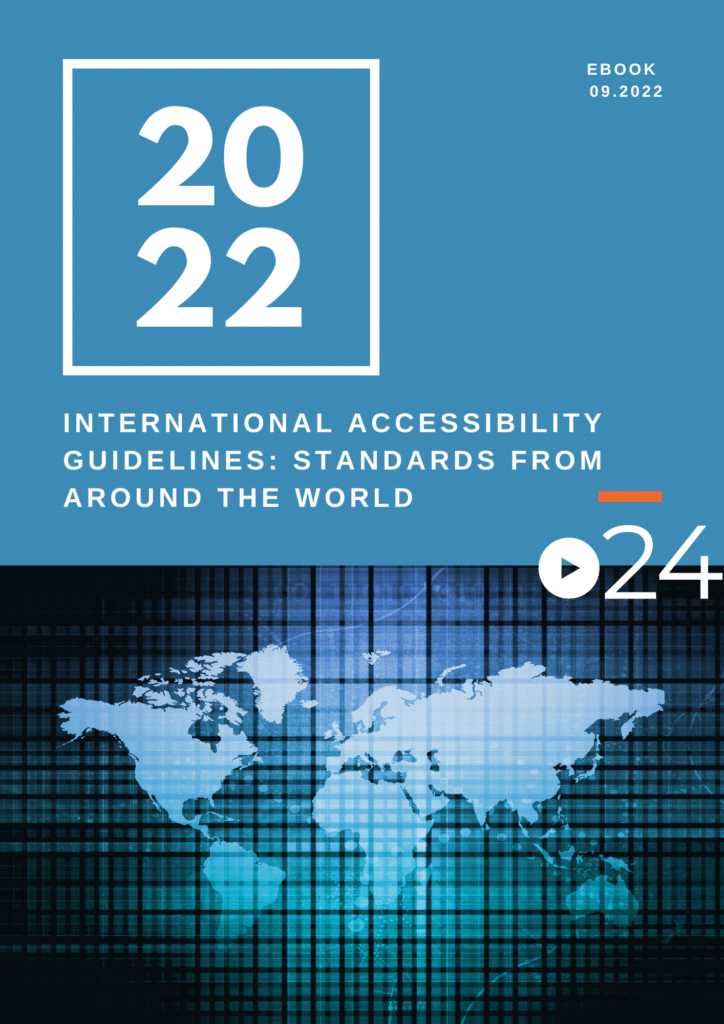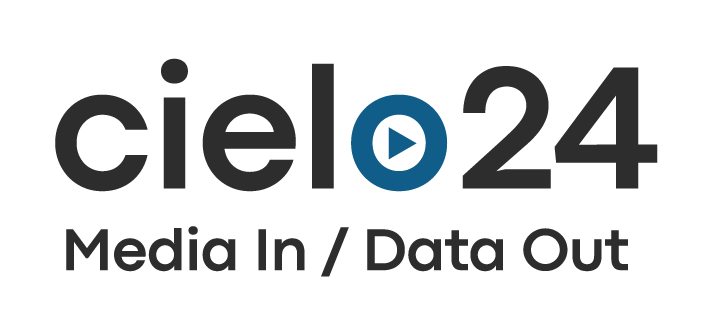How to Secure Funding for Accessibility Technology & Programs One of the biggest challenges to…

Accessible Video Legal Requirements for Private Universities: Federal Funding and Public Places of Accommodation
There has been a decades-long debate on accessible video legal requirements for private universities. Due to their receipt of federal funding and being classified as public places of accommodation, the overwhelming majority of private universities are legally obliged to ensure the accessibility of their educational materials for all students, including those with hearing impairments.
Federal Funding and Public Places of Accommodation
Federal Funding Requirements under Section 504 of the Rehabilitation Act of 1973:
Private universities often receive federal funding, which comes with the expectation that they comply with various federal laws and regulations. One such legislation is Section 504 of the Rehabilitation Act of 1973, which prohibits discrimination against individuals with disabilities by entities receiving federal financial assistance. Private universities are a critical part of the higher education landscape in the United States. According to the National Center for Education Statistics, private institutions enroll approximately 2.4 million students yearly. Private universities in the United States receive significant public funding directly and indirectly. Let’s examine several statistics regarding public funding and its impact on private universities:
-
Total Public Funding: Private universities receive billions of dollars annually. In 2019, private institutions received around $41 billion in direct funding from federal, state, and local governments.
-
Federal Grants and Contracts: Private universities benefit from federal grants and contracts, vital in funding research activities. In 2019, private universities received approximately $7.3 billion in federal grants and contracts.
-
Research Funding: Private institutions are major recipients of research funding from federal agencies like the National Institutes of Health (NIH) and the National Science Foundation (NSF). In 2019, private universities obtained nearly $16 billion in research funding.
-
Student Financial Aid: Private universities receive public funds indirectly through student financial aid programs, such as Pell Grants and federally subsidized loans. In 2019, private institution students received over $9 billion in Pell Grants alone.
-
Tax Deductions: Private universities benefit from tax deductions granted to donors and alumni, indirectly contributing to their funding. The tax deductions for charitable donations incentivize individuals to support private institutions financially.
-
Economic Impact: Private universities play a significant role in generating jobs and driving local economic growth. They contribute an estimated $593 billion to the U.S. economy annually.
-
Student Enrollment: Private universities enroll a significant portion of the total student population in the United States. In 2019, private institutions accounted for about 29% of undergraduate and 41% of graduate enrollment.
Accessible video legal requirements for private universities in the United States is determined if the University receives public funding directly and indirectly. These funds support various aspects of their operations, including research, student financial aid, and infrastructure development.
Captioning videos, for instance, is considered a crucial accommodation under Section 504. By providing captions, private universities ensure that their video content is accessible to individuals who are deaf or hard of hearing individuals, fostering an inclusive learning environment. According to cielo24.com, approximately 20% of the U.S. population has some form of hearing loss, emphasizing the significance of captioning videos to cater to a substantial portion of the student body. Failure to comply with federal funding requirements by neglecting captioning can result in losing funding or potential legal repercussions. Private Universities are legally required to accommodate accessible video.

Public Place of Accommodation Stipulations Under The Americans with Disabilities Act (ADA) of 1990
Private universities, irrespective of their funding sources, are considered places of public accommodation under the Americans with Disabilities Act (ADA) of 1990. The ADA requires that places of public accommodation provide equal access and services to individuals with disabilities. As a prominent medium in education, video content must be accessible to comply with this provision.
Captioning videos in private universities ensure effective communication for students who are deaf or hard of hearing. It allows them to fully engage with educational materials and participate in classroom discussions. Captioning also promotes a culture of inclusivity, diversity, and respect within the university community. Data reveals that 85% of Facebook videos are watched without sound, highlighting that captions benefit those with hearing loss and users in general.
The Web Content Accessibility Guidelines Addition
The Web Content Accessibility Guidelines (WCAG) are a set of internationally recognized standards developed by the World Wide Web Consortium (W3C) to ensure that web content is accessible to people with disabilities. While WCAG compliance is not mandated by law in all countries, it is widely recognized and encouraged as a best practice for creating inclusive digital environments. In higher education, including private schools, WCAG compliance is increasingly important to ensure equal access and opportunities for all students, including those with disabilities.
Here are ways WCAG is encouraged in higher education, particularly for private schools:
-
Legal and Regulatory Compliance: While the legal requirements for WCAG compliance vary by country and jurisdiction, many countries have laws or regulations that mandate accessibility in the public sector, including higher education institutions. Private schools may also be subject to these laws if they receive public funding or offer programs or services regulated by accessibility standards. Even if there is no specific legal requirement, WCAG compliance can help schools avoid potential legal issues related to accessibility discrimination.
-
Inclusive Education: WCAG compliance aligns with the principles of inclusive education, which advocate for equal access and opportunities for students with disabilities. Private schools can create an inclusive learning environment that accommodates diverse student needs by ensuring that digital content, including websites, learning management systems, online courses, and other educational resources, is accessible; private schools can create an inclusive learning environment that accommodates diverse student needs. This allows students with disabilities to fully participate in educational activities, access information, and engage with their peers.
-
Improved Learning Experience: WCAG compliance benefits not only students with disabilities but also all students. Accessible web content is often more user-friendly and easier to navigate, enhancing the learning experience for everyone. For example, captioned videos can benefit not only students who are deaf or hard of hearing but also those who prefer to watch videos in noisy environments or non-native speakers. Similarly, clear and well-structured web design benefits students with cognitive disabilities and those who prefer organized and easily digestible information.
-
Ethical Considerations: Private schools often prioritize inclusivity, diversity, and equal opportunities. By prioritizing WCAG compliance, schools can demonstrate their commitment to these principles and ensure their digital presence reflects their values. It promotes an inclusive culture that respects the rights and dignity of all individuals and helps foster a sense of belonging within the school community.
WCAG and Accessible Video Legal Requirements for Private Universities
The Web Content Accessibility Guidelines (WCAG) are increasingly being used as a framework to settle private university accessibility lawsuits. Increasingly WCAG guidelines are vital in settling private university accessibility lawsuits by providing a recognized standard for evaluating and achieving accessibility compliance. By referencing these guidelines, universities can work towards resolving accessibility barriers, implementing remediation plans, fostering awareness and training, and establishing sustainable practices to meet the needs of all students and avoid future legal disputes.
Most legal resolutions and settlements have led to establishing IT accessibility policies and related procedures, which must be widely communicated throughout institutions, reaching senior academic leaders (deans and chancellors), department heads, faculty, and staff. And the vast majority of cases have turned to WCAG compliance as a directive based on the WCAG emphasis on digital accessibility. Some examples include:
Accessible Video Legal Requirements in Private Universities
Private universities, as recipients of federal funding and places of public accommodation, are responsible for providing equal access to education for all students, including those with hearing impairments. Captioning video is a crucial aspect of this obligation, and it not only ensures compliance with federal laws but also promotes inclusivity, diversity, and respect within the university community.
Furthermore, the increasing number of digital accessibility lawsuits should serve as a strong motivator for all universities and educational institutions to address underlying systemic issues related to online accessibility. Failure to provide accessible resources, such as captions, transcripts, alternative text, screen reader capability, and audio description, not only leads to financial costs for organizations but also excludes a neurodiverse audience.
By prioritizing accessible media, private universities can create an inclusive and user-friendly learning environment that benefits all students and improves academic performance and outcomes. Moreover, private universities are generally bound by the same legal obligations as public institutions to ensure accessibility.
***

The International Accessibility Guidelines: Standards From Around The World will assist you and your organization learn about the accessibility standards of many other countries. Besides this, it will give you an overview of international accessibility standards as put forth by the United Nations in various articles, conventions, and committees.
This resource will cover international accessibility regulations, ranging from the following:
- The European Union
- The United Kingdom and Ireland
- Asia: Japan, China, South Korea, and India
- Australia and New Zealand
- The United Nations
Accessibility for Visual Media: Audio Description
Audio description is crucial in enhancing accessibility for individuals with visual impairments in visual media. It provides a unique form of narration that brings visual elements to life for those unable to see them. However, challenges still need to be solved regarding audio description consistency and availability, and efforts are being made to address these issues. As the industry continues to evolve, it is essential to prioritize accessibility and ensure that audio description is consistently and effectively provided in visual content to make it more inclusive for all viewers. If you are seeking an audio description solution, contact cielo24 for additional information about Video localization services; contact us here.
According to a survey by Verizon Media, 80% of consumers are more likely to watch an entire video when captions are available. Enjoy a complimentary trial account.
International organizations enjoy local hosting, a wide range of foreign languages, and other services; learn more.


